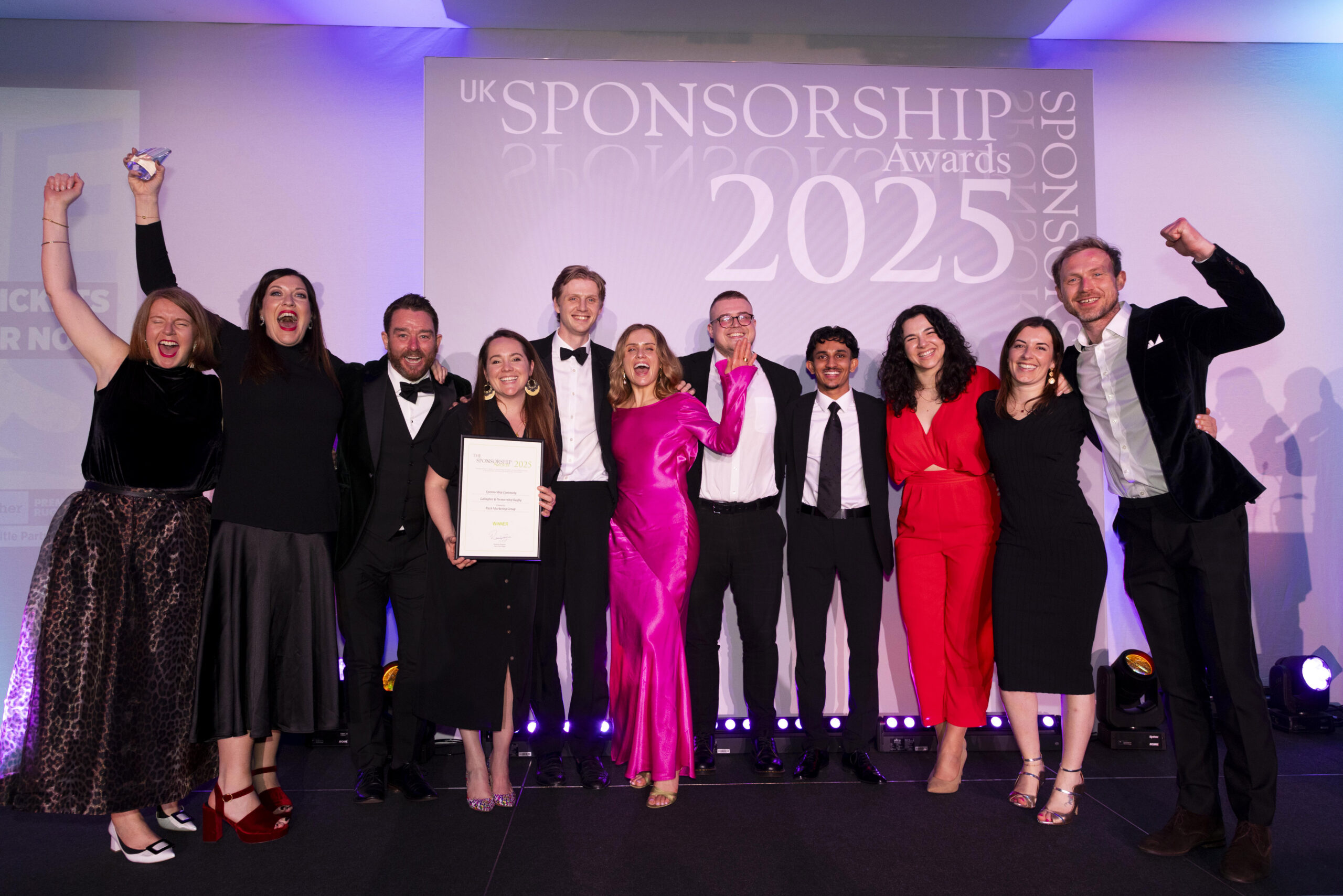Sponsorship marketing is a powerful tool for brands seeking to enhance their visibility and connect with target audiences. By partnering with sports teams, athletes, or events, businesses can leverage the passion and engagement of fans to drive brand awareness, increase sales, and build positive associations. This blog will outline what sponsorship marketing is, why it’s advantageous for brands, and how to create a winning plan.
What is Sponsorship Marketing?
Sponsorship marketing is a strategic and mutually beneficial partnership between a brand and a sports team, athlete or event. By providing financial or in-kind resources, the brand aims to become an integral part of the sports experience. This association leverages the emotional connection fans have with their favourite teams or athletes, creating a more authentic and impactful brand association than traditional advertising.
Sports entities, with their passionate fan bases, often align well with specific consumer segments. Brands will aim to partner with teams, athletes or events that resonate with their target audience and brand values. Partnerships may see brand logos being used on sportswear, merchandise or venue signage, as well as collaborations on branded content, exclusive fan experiences, and community involvement.
The Benefits of Sponsorship Marketing
Beyond brand awareness, sponsorship marketing provides many other advantages for brands. When executed effectively, it can significantly enhance brand image, provide exclusive content opportunities, and generate valuable marketing assets. Let’s delve deeper into these advantages:
Enhances Brand Image
Sponsorship marketing offers a strategic opportunity to align a brand with the aspirational values of sport, perseverance, and excellence. For instance, a brand that sponsors a marathon may be perceived as an advocate for health, fitness, and community engagement. This positive association can enhance brand image, attract new customers, and foster greater loyalty among existing ones.
Provides Exclusive Access
VIP access, behind-the-scenes events, or chances for direct fan involvement are just a few of the benefits that come with sponsorships. These advantages let companies design distinctive experiences that set them apart from rivals. Offering premium seating at events or special meet-and-greets with celebrated athletes, for example, can help to build closer relationships with consumers.
Generates Content Opportunities
Sponsorship marketing also provides ample opportunities for content creation. Businesses can leverage the partnership to produce engaging social media posts, videos, and stories that highlight the collaboration and captivate audiences. This material can help to generate excitement before an event and sustain engagement long after it concludes. A well-executed content strategy can significantly amplify the impact of sponsorship, extending its reach far beyond the event itself and creating a lasting impression on the target audience.
Developing a Strategic Sponsorship Marketing Plan
To maximise the benefits of sponsorship marketing, brands must have a well-crafted strategy. A successful approach requires meticulous planning, clearly-defined objectives, and a focus on engaging the target audience. The following guidelines can help you create a strong sponsorship marketing plan:
Identifying the Right Partner
Selecting the ideal partner is paramount to a successful sponsorship. The athlete, team, or event that you endorse should align with the values of your business and target market. A health-conscious business might, for instance, support a big marathon or partner with a well-known athlete who embodies their brand’s ethos. The right collaboration guarantees that the sponsorship resonates with your audience and reinforces your brand’s identity.
Defining Clear Objectives
Setting clear objectives is crucial before committing to a sponsorship. Whether your goals are raising brand awareness, boosting sales, or strengthening brand loyalty, well-defined objectives will direct your approach and allow for effective evaluation of their performance.
Engaging the Audience
To really stand out, sponsorships must go beyond passive branding and actively engage their target audience. This requires innovative strategies such as interactive events, engaging social media campaigns, and unique content that authentically conveys the sponsorship.
For instance, a company could host a social media challenge tied to the sponsored event, encouraging fans to participate and share their experiences. By fostering engagement, brands can strengthen their connection with their audience, amplify the reach of the sponsorship, and create lasting positive associations.
Measuring Sponsorship Success
Understanding the impact of a sponsorship depends on knowing its success. Setting key performance indicators (KPIs) within consumer attitude, brand awareness, social media activity, and sales figures can be helpful. By routinely monitoring these indicators, companies can evaluate the success of their sponsorship and base future campaign decisions on data.
Examples of Successful Sponsorship Marketing
These companies have successfully cultivated mutually beneficial partnerships by aligning their brand values and messaging with the ethos and aspirations of the sports they sponsor.
Nike and the NFL
Nike’s NFL sponsorship extends far beyond mere logo placement. The brand has forged strategic partnerships with prominent athletes like Colin Kaepernick, collaborating on exclusive footwear lines that inspire a sense of innovation and daring that resonates with NFL fans.
These high-profile collaborations not only generate significant buzz but also solidify Nike’s position as a brand at the forefront of athletic performance and cultural relevance. By aligning with athletes who resonate deeply with NFL fans, Nike taps into the emotional connection between fans and their favourite players, creating a more authentic and impactful brand experience.
Coca-Cola with FIFA
Coca-Cola leverages the global reach and excitement surrounding major football tournaments to create engaging campaigns that resonate with fans worldwide. The partnership allows them to gain access to exclusive rights and opportunities, such as advertising placements, sponsorship activations, and product integrations.
Coca-Cola also creates engaging experiences for fans, both at the stadium and online. This includes offering exclusive promotions, giveaways, and interactive activities that enhance the fan experience and strengthen brand loyalty.
Nike and Coca-Cola are just a couple of examples of companies that have successfully leveraged sponsorships. For more inspiration on how to create effective sponsorship campaigns, take a look at our five favourite sports sponsorships here.
Ready to Improve Your Sponsorship Strategy?
The benefits of sponsorship marketing are clear, making it a vital tool for brands trying to increase their presence and resonate with sports fans.
At Pitch, we specialise in crafting tailored sponsorship strategies that deliver tangible results. Our team of experts can help you achieve your goals, whether they involve increasing brand awareness, engaging with passionate sports fans, or creating impactful marketing campaigns. Contact us today to discover how strategic sports marketing can elevate your business and drive success.





